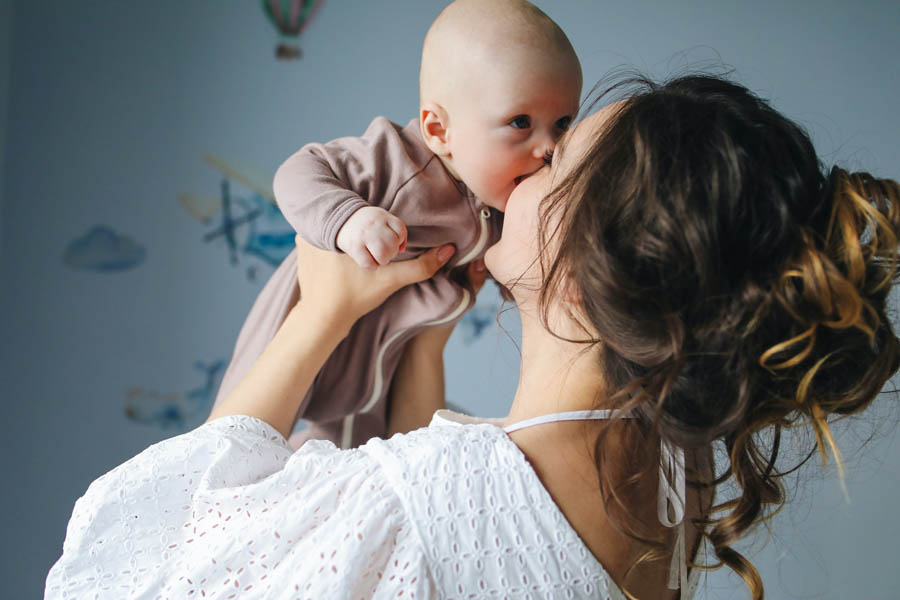Exciting news comes from the frontier of research for pregnant moms in need of housing, as Heartbeat International is collaborating with the Lab for Economic Opportunity (LEO) through Notre Dame University to conduct the first ever research study on the impact of maternity homes in the U.S., launching in spring February of 2022.
The five homes being studied over an estimated 3-5 years are members of the National Maternity Housing Coalition (NMHC). Each home and the NMHC has been awarded a $25k gift from the LEO to facilitate this study. Preparations have been taking place for about a year.
Valerie Humes, housing specialist for Heartbeat International and director of the NMHC, offered insight into the societal impact of maternity housing and how the resources it takes to operate maternity homes, or lack thereof, affect the homes’ surrounding communities. Speaking in big-picture terms, she explained the shift in society in previous years to the present, where, in the past a maternity home was a place to which a young pregnant woman would be sent away, to now, a place where she finds a home in her time of need.
“Society was less forgiving back then,” Humes explained, “lack of school programs, and no subsidies on state or federal level. This is where the maternity home was started, starting in the 80s through the 90s broadly when we started to see maternity homes coming about.”
[Click here to subscribe to Pregnancy Help News!]
Prior to the 2000’s families were reunited much of the time, she said, and women facing an unplanned pregnancy often had families and support. But the woman in need has changed along with society, often in a shift away from that reunification scenario. Those serving in maternity housing ministry are seeing how relationships, violence and sex trafficking, drugs and other abuse coincide with this shift.
“Whereas now we are seeing that that (reuniting with family) is not the case, because now these women are totally alone, abused and trafficked,” Humes old Pregnancy Help News. “Now we see fourth-generation displaced family units, 50-70 percent in maternity homes experienced in foster care or have aged out of foster care.”
“The heartbeat of this housing movement is to approach her more about the value of her own life, and help her with some long-term help,” Humes said. “Now the mom can live in the home, or if she chooses, to live out of the home. The mom still receives care and support through the process in the community through these maternity homes.”
With this new approach maternity homes could not go to the public to ask for funding because there was no established data at first to prove what they were doing works. Through Notre Dame’s Lab for Economic Opportunities initial studies were performed with non-profits to test a particular concept or approach, and this provided the opportunity to obtain the objective data needed.
“Now it is replicable in the community because we can now establish a standard method of practice and continue to help people,” Humes said.
All academic research with the LEO housing study must pass through an International Review Board with protective oversight for the moms and their babies, with strict standards to ensure the study is not harming anyone involved.
Another goal of this study is to establish more continuity of care across maternity homes.
Heather Reynolds, managing director of the LEO, explained how the study’s intent is to address poverty, assess the impact of maternity homes, and to employ the results for the betterment of lives.
Reynolds said, “The goal of this study is to use evidence to help assist the impoverished in our community; also, to create evidence/gather evidence to cover the impact of maternity homes. And lastly, to not only create evidence, but put evidence to use to help people.”
The study and those behind it are endeavoring to procure the data needed to enable maternity homes to obtain the necessary funding to foster their service their respective communities, specifically, maternity homes with an all-comprehensive approach to support for the entire family.
The intent will be to show how this comprehensive approach improves housing stability, employment and earnings for the women involved. The study will look closely at those who received help from the maternity homes and also those who did not receive help from the maternity homes.
“Every human being has dignity and worth,” Reynolds said.
Tweet This: “Every human being has dignity and worth” - Maternity homes will be studied to see how best to serve women and their children
By utilizing the system of due process appropriately, those conducting the study will create the solid foundation needed for the gathered data to be true, dependable, and repeatable.
Reynolds explained, “We’re living in a world that’s overly political, and evidence cuts through that. It (evidence) is completely non-partisan. It’s all about the evidence.”
Learning how the woman in need has evolved and changed, how societal attitudes have become more open minded about single moms in need versus 30-40 years ago, and studying those trends to understand the background of where these women come from today is paramount to helping them and their families most effectively now and in the future.
With this Heartbeat International-LEO collaborative maternity housing study, parties from different organizations are coming together in the name of facts and evidence and pregnancy help to best support the community for future generations to come.
The LEO research team is comprised of the following individuals:
Bill Evans, one of LEO's co-founders and an economics professor at Notre Dame. His formal title is Keough-Hesburgh Professor of Economics.
Adrienne Sabety, Wilson Family LEO Assistant Professor of Economics
Jessica Brown, a LEO Faculty Affiliate who is an assistant professor of economics at the University of South Carolina
The homes involved are as follows:
Maggie’s Place (Phoenix, Arizona)
Our Lady’s Inn (St. Louis, Missouri)
Bethlehem House (Omaha, Nebraska)
In My Shoes (Dallas, Texas)
Aid for Women (Chicago, Illinois)
Editor's note: Heartbeat International manages Pregnancy Help News.






